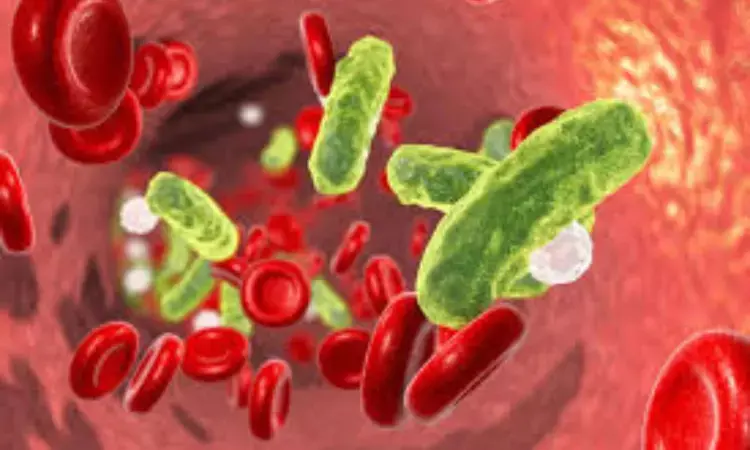- Home
- Medical news & Guidelines
- Anesthesiology
- Cardiology and CTVS
- Critical Care
- Dentistry
- Dermatology
- Diabetes and Endocrinology
- ENT
- Gastroenterology
- Medicine
- Nephrology
- Neurology
- Obstretics-Gynaecology
- Oncology
- Ophthalmology
- Orthopaedics
- Pediatrics-Neonatology
- Psychiatry
- Pulmonology
- Radiology
- Surgery
- Urology
- Laboratory Medicine
- Diet
- Nursing
- Paramedical
- Physiotherapy
- Health news
- Fact Check
- Bone Health Fact Check
- Brain Health Fact Check
- Cancer Related Fact Check
- Child Care Fact Check
- Dental and oral health fact check
- Diabetes and metabolic health fact check
- Diet and Nutrition Fact Check
- Eye and ENT Care Fact Check
- Fitness fact check
- Gut health fact check
- Heart health fact check
- Kidney health fact check
- Medical education fact check
- Men's health fact check
- Respiratory fact check
- Skin and hair care fact check
- Vaccine and Immunization fact check
- Women's health fact check
- AYUSH
- State News
- Andaman and Nicobar Islands
- Andhra Pradesh
- Arunachal Pradesh
- Assam
- Bihar
- Chandigarh
- Chattisgarh
- Dadra and Nagar Haveli
- Daman and Diu
- Delhi
- Goa
- Gujarat
- Haryana
- Himachal Pradesh
- Jammu & Kashmir
- Jharkhand
- Karnataka
- Kerala
- Ladakh
- Lakshadweep
- Madhya Pradesh
- Maharashtra
- Manipur
- Meghalaya
- Mizoram
- Nagaland
- Odisha
- Puducherry
- Punjab
- Rajasthan
- Sikkim
- Tamil Nadu
- Telangana
- Tripura
- Uttar Pradesh
- Uttrakhand
- West Bengal
- Medical Education
- Industry
7-day antibiotic regimen good enough for tackling bacteremia and reducing length of hospitalization: Study

A new study published in the journal of Frontiers in Medicine found that while showing similar effectiveness and safety results, the 7-day antibiotic regimen for bloodstream infections (BSI) was linked to a noticeably shorter hospital stay than the 14-day regimen.
Through innovative ideas and technology, substantial advancements in medical research, especially in critical care medicine, have significantly improved patient outcomes in recent decades. However, because of their high incidence and fatality rates, BSIs, particularly those brought on by
Gram-negative bacteria (GNB), continue to pose a serious threat and place a significant financial and medical burden on the world. There is continuous discussion on the ideal length of antibiotic treatment for BSI. Changyun Zhao and colleagues addressed this by using a meta-analysis to assess the safety and effectiveness of 7-day & 14-day antibiotic regimens in the treatment of BSI.
This study conducted a thorough search of the Cochrane Library, Web of Science, PubMed, and Embase from the time of their creation until March 10, 2025. Randomized controlled studies (RCTs) that compared antibiotic regimens of 7 and 14 days for the treatment of BSI were included. The risk of bias was assessed using the Cochrane risk of bias assessment tool.
All-cause mortality and 90-day mortality were the main outcomes, whereas recurrent bacteremia, readmissions or prolonged hospitalization, suppurative complications, resistance emergence, length of hospital stay, and adverse events were the secondary outcomes. The next step was trial sequential analysis (TSA).
4 RCTs totaling 4,794 patients were included in the meta-analysis. The findings showed no statistically significant changes in 90-day or all-cause mortality between the 7- and 14-day antibiotic regimens. There were no statistically significant variations in 90-day or all-cause mortality when the study was limited to BSI brought on by GNB.
When compared to the 14-day antibiotic treatment, the 7-day regimen was linked to a noticeably shorter hospital stay. Acute kidney damage (AKI), Clostridium difficile infection (CDI), diarrhea, and rash were among the other secondary outcomes or adverse events, although no discernible changes were found. Additionally, the TSA indicated that a false negative conclusion may have been reached based on the present data.
Overall, a 7-day antibiotic treatment was linked to a shorter hospital stay for patients with BSI than a 14-day regimen, according to this systematic review and meta-analysis. Mortality rates, recurrent bacteremia, readmissions or lengthening hospital stays, suppurative effects, and the development of resistance, however, did not vary significantly.
Reference:
Zhao, C., Chen, C., Lu, D., Cai, K., Hu, W., & Mao, W. (2025). Antibiotic treatment for 7 days versus 14 days in patients with uncomplicated bloodstream infections: a Systematic review and meta-analysis of randomized controlled trials and trial sequential analysis. Frontiers in Medicine, 12(1617328). https://doi.org/10.3389/fmed.2025.1617328
Neuroscience Masters graduate
Jacinthlyn Sylvia, a Neuroscience Master's graduate from Chennai has worked extensively in deciphering the neurobiology of cognition and motor control in aging. She also has spread-out exposure to Neurosurgery from her Bachelor’s. She is currently involved in active Neuro-Oncology research. She is an upcoming neuroscientist with a fiery passion for writing. Her news cover at Medical Dialogues feature recent discoveries and updates from the healthcare and biomedical research fields. She can be reached at editorial@medicaldialogues.in
Dr Kamal Kant Kohli-MBBS, DTCD- a chest specialist with more than 30 years of practice and a flair for writing clinical articles, Dr Kamal Kant Kohli joined Medical Dialogues as a Chief Editor of Medical News. Besides writing articles, as an editor, he proofreads and verifies all the medical content published on Medical Dialogues including those coming from journals, studies,medical conferences,guidelines etc. Email: drkohli@medicaldialogues.in. Contact no. 011-43720751


